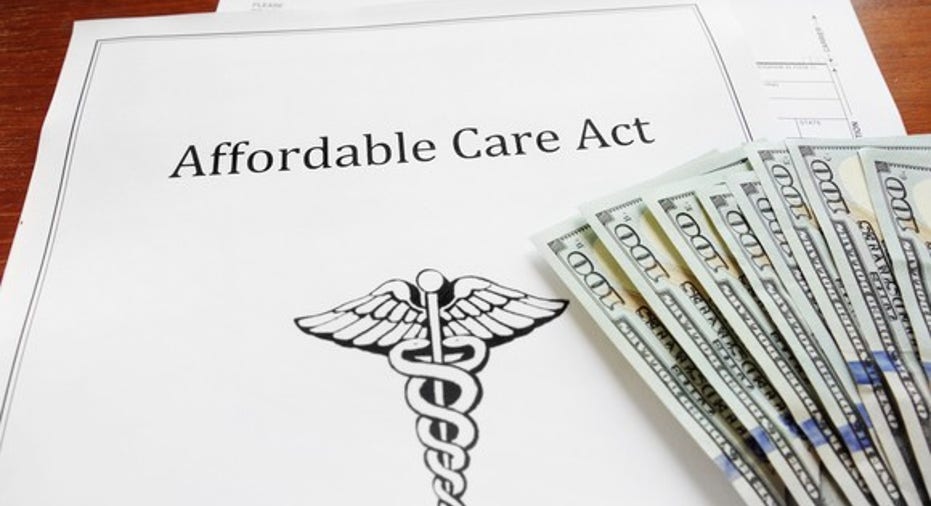What Does 2017 Hold for Obamacare?

The Affordable Care Act became law in 2010, and the law has remained controversial long after its enactment. Until recently, policymakers didn't expect any major changes to Obamacare during 2017, but they acknowledged that the outcome of the 2016 presidential election would have huge implications for the fate of healthcare reform going forward. With President-elect Donald Trump set to take office in less than a week, lawmakers are now taking aim squarely at repealing Obamacare, with the apparent intent of replacing it with an as-yet unspecified alternative. Below, we'll take a look at what 2017 was initially expected to hold for Obamacare as well as the steps that the Trump administration seems likely to take against the program.
Image source: Getty Images.
Minimal changes to Obamacare were scheduled for 2017
All in all, 2017 was supposed to be a fairly calm year for the Affordable Care Act. With nearly all of its provisions having been fully enacted and implemented, only modest changes to the program have thus far taken place this year. Those include the following:
- Penalties under the individual coverage mandate rose slightly, but only for those whose income was high enough to pay the absolute maximum penalty. Ordinary penalties of $695 per adult and $347.50 per child, with a family maximum of $2,085, remained in place, as did the alternate calculation of 2.5% of income above the filing threshold. Yet the cost of an average bronze-tier plan through the health insurance marketplace is expected to rise slightly, adding perhaps $100 to the maximum penalty for high-income individuals.
- Average premiums rose throughout most of the country in 2017. Those who get subsidies under Obamacare won't see any increase, as it will be borne by the program itself. Those who aren't eligible for subsidies, however, will bear the costs themselves.
- New rules aimed at making information available to participants took effect at the beginning of the year. The measures require notification when certain providers are taken out of network coverage options, and they also adjust how out-of-pocket maximums are determined in out-of-network situations.
What the Trump administration wants
Meanwhile, the president-elect has made quite clear that repealing Obamacare is his top priority. Trump has said that as soon as his nominee for the U.S. Department of Health and Human Services gets confirmed, he expects to submit a plan for Congress to consider and enact. There's some disagreement among administration officials and congressional lawmakers on the exact time frame for a replacement for Obamacare to become available, but most expect some form of resolution by March.
Already, Congress is trying to get a jump on the process. Yet there's also uncertainty about the extent to which the reconciliation procedure that Republicans hope to use to smooth passage of measures will be available to meet the president-elect's wishes. To the extent that regular votes are required, Senate Republicans will face the likelihood of a Democratic filibuster because of their narrow majority there.
Among the aspects of Obamacare that are likely to face attack most quickly are the penalties under the individual and employer mandates, expansion of Medicaid coverage, and the Cadillac tax on high-value health insurance coverage. Those are most clearly vulnerable to the reconciliation procedure.
Key aspects of what Trumpcare might look like aren't yet known. But many expect them to use health savings accounts, with or without their traditional connection to high-deductible health plans. Block grants and vouchers have been advanced as possible ways to fund healthcare in lieu of existing payouts. Some more extreme measures, including eliminating the state-by-state nature of health insurance coverage to create an interstate market, pose interesting conceptual challenges to the ideologies of some Republican lawmakers and are therefore more uncertain to make it into final legislation.
As we'll see in the weeks to come, the fate of Obamacare is in serious doubt, and the president-elect and key congressional leaders will fight hard to repeal the healthcare program. Given the Republican Party's control of Capitol Hill and the White House, it's very unlikely that Obamacare will survive 2017 in anything like its current form.
The $15,834 Social Security bonus most retirees completely overlook If you're like most Americans, you're a few years (or more) behind on your retirement savings. But a handful of little-known "Social Security secrets" could help ensure a boost in your retirement income. For example: one easy trick could pay you as much as $15,834 more... each year! Once you learn how to maximize your Social Security benefits, we think you could retire confidently with the peace of mind we're all after.Simply click here to discover how to learn more about these strategies.
The Motley Fool has a disclosure policy.



















